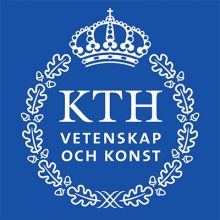The European Commission has chosen the groups of universities that will explore whether the bloc should create a label for joint degrees and a dedicated legal structure for cross-border institutions.
The 10 projects involve 90 higher education institutions and 17 ministries, with all European Union countries, Norway, Turkey, Switzerland and the UK represented. Each group has a year and up to €200,000 (£176,000) to either flesh out common criteria that joint programmes should meet to merit a “European degree” label, or to find out whether the bloc needs a new type of legal entity for universities to work together across borders.
“The commission will work closely together with the selected projects to explore and examine, hand in hand with the higher education stakeholders and national authorities, ways to make transnational cooperation easier,” said the EU education commissioner, Mariya Gabriel, in announcing the funding.
EU governments have tended to hold on to their powers in education. The wider intergovernmental Bologna Process has aligned some regulations, but many hurdles remain, an issue the pilots aim to fix. “They’re important because they’re opening the question of transfer of sovereignty in terms of delivering diplomas and legal existence,” Sebastian Stride, a founding partner at the consultancy Siris Academic, told Times Higher Education.
Label trials include those looking at general joint programmes and others focused on highly regulated professions, such as engineering. “If this moves over to a European level, the professional associations don’t have the same weight in terms of regulation,” said Dr Stride. “This is the sort of thing which could have a very big knock-on effect.”
Maria Kelo, director of institutional development at the European University Association, said the involvement of universities would hopefully mean future European degree labels or legal structures would have tangible benefits and be light on red tape.
“It’s not yet clear what the benefit could be from getting that label. If it increases your chances of getting international students a lot, gets you more visibility, or lets you skip parts of your quality assurance processes, then that might be much more interesting for the institutions. If it’s just another procedure for a little star on your papers, then I’m not sure they are so keen on it,” she said.
“Probably most of them did not get into it because of the money, but because they are ready to invest something of theirs to have a say on this topic, which for some is very important.”
But Ms Kelo warned that the one-year schedule would mean that any lessons from the pilots would be “quite limited”. “The testing will be very limited as well, and we could get out of it something which is maybe not the full picture, so there might need to be a second stage.”
Anders Söderholm, president of the KTH Royal Institute of Technology, a member of the Unite alliance, said the pilots “could be a game changer”, but only if politicians “further harmonise their higher education systems and progressively remove the many obstacles that European universities face”.
Register to continue
Why register?
- Registration is free and only takes a moment
- Once registered, you can read 3 articles a month
- Sign up for our newsletter
Subscribe
Or subscribe for unlimited access to:
- Unlimited access to news, views, insights & reviews
- Digital editions
- Digital access to THE’s university and college rankings analysis
Already registered or a current subscriber? Login









